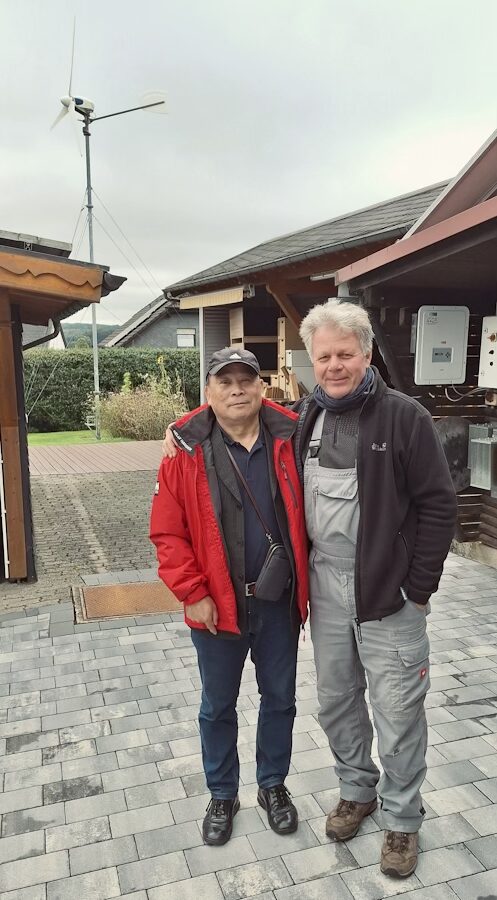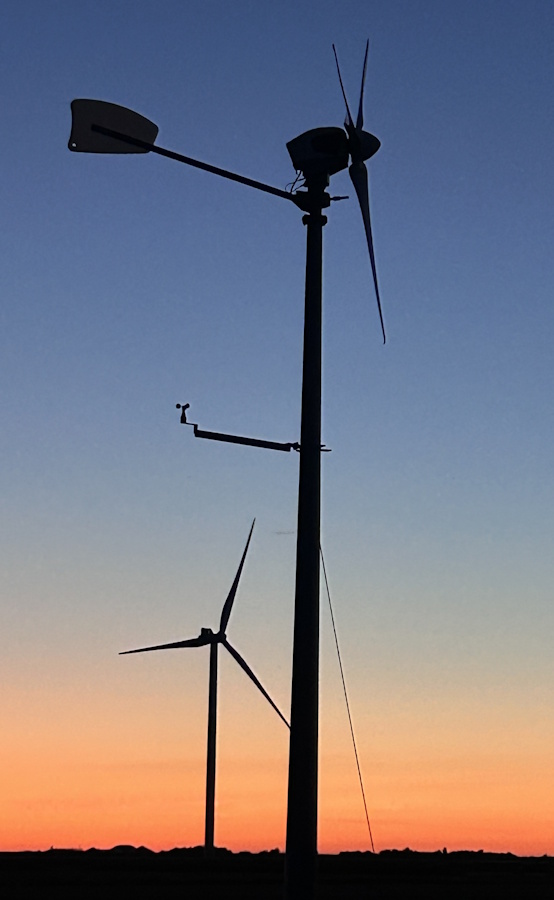BRAUN Windturbinen GmbH is the pioneer in the field of small wind turbines – MdL Dr. Peter Enders calls for clear state requirements for approval
Nauroth. Naurother BRAUN Windturbinen GmbH delivers around 150 small wind turbines every year. The company has been active on the market for 22 years and has created a brand with its ANTARIS series with a power range of 1.5 to 10 kilowatts and a height of 15 to 24 meters, which is now used worldwide – with the exceptions of China and the USA. The CDU member of the state parliament Dr. Peter Enders from Eichen got an idea of the company’s performance on site. Small wind turbines, as company founder Rüdiger Braun described it, are “usually used in Germany as a low-noise side system to an existing main plant for one’s own energy supply.” The focus of small wind technology is on the self-consumption of the energy produced, not on remuneration for the amount fed into the grid, and must also be assessed against this background under licensing law. For example, farmers and companies in particular use the systems to supply outbuildings, but the systems are also becoming more important for private homes in the course of the energy transition, for example in combination with a photovoltaic system.
The Braun systems are also installed in the Westerwald. Medium-sized companies produce the relevant parts, including the generator housing, the rotor shaft and the control box. Installation and after-sales services are just as much a part of the offer as support in approval issues. In addition, the company also conducts workshops in which the basics for the successful use of small wind turbines are taught. Most of the ANTARIS systems from Braun have so far been sent mainly to Bavaria, as the approval process there is comparatively faster. While in some federal states turbines up to a height of ten meters are generally exempt from approval, in other federal states a permit for construction is required.
And this is precisely a problem that Braun also drew Peter Enders’ attention to. Rhineland-Palatinate is having a hard time, there is no small wind turbine ordinance here – with consequences for the approval practice. “Unfortunately, there is ignorance and uncertainty among the licensing authorities in parts of Rhineland-Palatinate, because there is obviously a lack of clear specifications,” says Braun. For example, there are municipalities that almost wave through the construction of a small wind turbine, others sometimes stand in the way.




